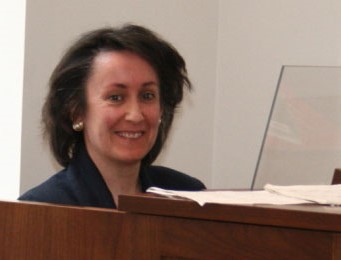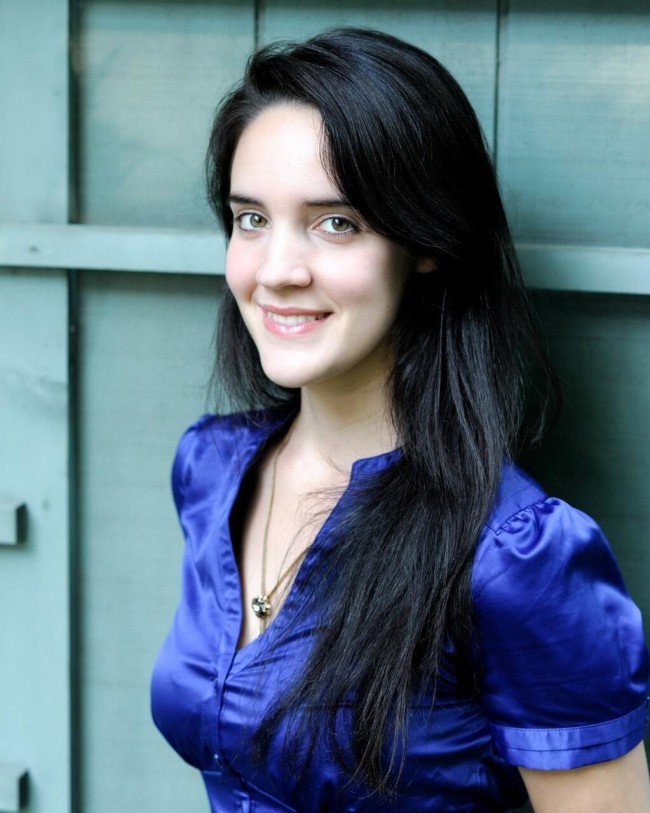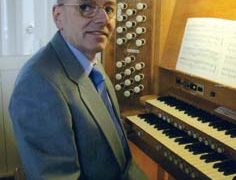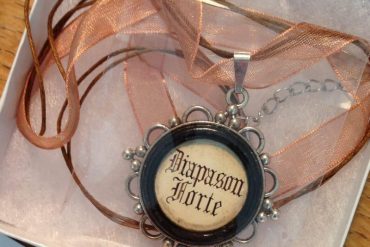
Nicky Fraser converted from piano to organ eight years ago and under the guidance of Colin Tipple, has recently gained her ARCO. (So she’s a bit like me, but further on!) She’s organist at Inverleith St. Serf’s Church in Edinburgh, where the organ has just been renovated by Principal Pipe Organs of York – so that’s another reason to be cheerful. Nicky says “Principal Pipe Organs have brought this Rushworth & Dreaper organ back to its former glory, and much more. The church has a wonderful acoustic – a perfect setting for this instrument with its quality solo stops.” The acoustic is also enjoyed by the New Edinburgh Orchestra who give regular concerts in the church and who Nicky joined on the organ, in 2011, for a performance of the Saint-Saens’ Organ Symphony. She has given several recitals at Inverleith St. Serf’s, regularly including repertoire by French romantic and late romantic composers. Her forthcoming recital there in September is part of the RCO’s 150 for 150 Recital Challenge and will be a triple celebration of the RCO’s 150th anniversary, Inverleith St. Serf’s newly-renovated organ and Nicky’s recent ARCO success. Nicky runs a busy teaching practice in which she teaches piano, organ and some violin (she is a second-study string player). Here are her answers to my five questions:
Which piece of music are you studying at the moment and why?
Several, in preparation for my recital in September to mark the organ renovation: my programme will include: Bach B minor Prelude and Fugue, BWV 544, and Guilmant Lamentation, opus 45 and Scherzo Symphonique. I’m particularly looking forward to performing the Guilmant Lamentation, which is a narrative and highly emotional work. It traces the composer’s deep sadness, intense anguish and quiet acceptance of the death of a friend killed by a shell in the bombardment of Paris, during the Franco-Prussian war.
What has been your best experience as an organist?
There are three. The first was in 2011, when I was lucky enough to be asked by the New Edinburgh Orchestra (which gives several concerts a year at Inverleith St. Serf’s) to play the organ in the Saint- Saens Organ Symphony with them. Was I glad I’d been on the National Centre for Orchestral Studies in 1986, albeit as a second-study violist! The whole experience of playing this major work from the French romantics on the organ, with this orchestra, in my home church and then being asked back for three curtain calls(!), was definitely the highpoint of my musical life, so far.
Then, recently, I found out I had passed ARCO, making all my efforts since taking up the organ seriously in 2006 so very, very worthwhile.
And finally, I have the extreme good fortune to be the incumbent organist in a church whose instrument has just been renovated. In 2009, Principal Pipe Organs of York brought a new lease of life to our 1931 Rushworth and Dreaper 3-manual, 29-speaking-stop organ by upgrading the console. Now, in early April 2014, they have completed the restoration of the organ’s pipework and bellows and have fitted new slider soundboards. The result is like an old master painting that has been thoroughly cleaned up to let the original colours shine through, with some previous problems a thing of the past. Principal Pipe Organs have done an absolutely wonderful job on our lovely instrument and I now have a real treat of an organ to play every week. We have a schedule of concerts planned over 2014 to highlight the renovation (including my own recital) and today, I played our instrument for the first time since its renovation, for a delighted Minister and congregation at this Sunday morning’s service. As for me? I was thrilled!
What has been your worst experience as an organist?
It was early summer and I was playing for a wedding at my church. At this time, all communication to the organist happened via a CCTV on top of the console, which faced away from the congregation. There was strong sunlight that day, and our church lets in a lot of light. Also, the wedding “warning” light on the console wasn’t working. No matter. I played various appropriate pieces before the service until it was time for the wedding to start. Then at the appointed time, I looked up at the CCTV and saw the doors opening; I could see somebody’s hand going up and a hazy, sunlit outline of a woman in a long-ish, pale dress. “Right – here’s the bride”, I thought, and launched into the entrance fanfare. Yes, you’ve guessed it – it wasn’t the bride……..it was a wedding guest and a small child, who had now also become visible in the CCTV! All the other guests thought this was really funny – a ripple of laughter went round the congregation – and what a grand entrance for the woman and little boy!! I, on the other hand, felt a complete twit and crept back into whatever I’d been playing, until the real bride arrived. Thank goodness our console has now been turned around and the organist can see what’s going on!!
What’s the best piece of advice you were given by an organ teacher? (and who was it?)
Thirty years ago, my mother asked me to accompany her school choir on the organ in Gounod’s Petite Messe Solonelle, on their trip to Assisi (she couldn’t get anybody else!). However, my organ experience then was of manuals-only hymn-playing, from when I was ten years old. What to do?? Well, very, very fortunately, my father knew the late Ralph Downes and to cut a long story short, I had a crash course of four lessons from this wonderful organist and teacher. He gave me the basics of pedalling, legato playing and stop management (this was gold-dust in itself!), which I gave my best shot and tried really hard to get competent in a very short space of time. After the fourth lesson, he wrote to me to wish me all the best in Assisi and at the end, he wrote – “Nihil desperandum” ! Now, this might seem a bit negative, but I’m so very glad I took his advice and didn’t “despair”, as I would never have gone later on to discover the instrument of my life and I certainly wouldn’t now have ARCO.
What would be your own best piece of advice for student organists?
If you become a church organist, never neglect to practise the hymns before a service. None of us need any prompting to practise fancy voluntaries that will demonstrate our abilities as organists. But one of the main elements of the job, along with accompanying the choir, is to lead the congregation in their hymn singing. Members of the congregation appreciate being supported by an organist whose registration highlights the words for them in each verse and who gives them the confidence to sing out. The many opportunities to play voluntaries, give recitals etc are definitely the icing on the cake!




